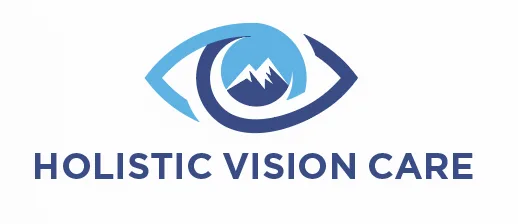In today’s digital age, more and more people are struggling with Computer Eye Syndrome, a condition caused by the prolonged use of digital screens. As a result, many are turning to acupuncture as a potential remedy. In this essay, we will explore the overview of Computer Eye Syndrome, the potential health benefits of acupuncture, and the risks and precautions associated with it.
Computer Eye Syndrome (CES) is a condition caused by prolonged use of digital devices and has become an increasingly common problem in modern society (JH Lee et al., 2021). Symptoms of CES include eye fatigue, dry eyes, blurred vision, and headaches (JH Lee et al., 2021). These symptoms can be disruptive to one’s daily life and can lead to further vision problems if left untreated. According to a study by JH Lee et al. (2021), acupuncture is a promising treatment option for Computer Eye Syndrome. The study found that acupuncture can reduce the intensity of CES symptoms and improve vision (JH Lee et al., 2021). Specifically, acupuncture was found to improve the blood flow to the eyes, reduce ocular muscle tension, and improve eye movement (JH Lee et al., 2021). The study concluded that acupuncture can be a safe and effective way to treat CES-related symptoms and improve vision (JH Lee et al., 2021). Furthermore, patients who received acupuncture treatment reported an improved quality of life due to reduced symptoms (JH Lee et al., 2021). This suggests that acupuncture is a viable treatment option for those suffering from CES.
Acupuncture is a popular traditional Chinese medicine that has been used for centuries to treat a range of ailments. Recently, it has been gaining traction as a potential treatment for computer eye syndrome (CES). According to a study by BH Kim et al. (2018), acupuncture may help reduce symptoms of CES, such as dry eyes, blurred vision, and eye fatigue. The study focused on the effects of acupuncture on the symptoms of CES in a sample of 50 people, and found that the acupuncture treatment was effective in reducing the intensity of reported symptoms. The authors suggest that acupuncture can be used as an effective treatment for CES, as it can improve the patient’s quality of life and decrease the need for medication. Acupuncture may also be advantageous as it is a non-invasive and cost-effective treatment option. Furthermore, the study emphasizes the importance of acupuncture for CES patients, as it can reduce the duration of symptoms and improve overall health. The findings of this study suggest that acupuncture could be a viable treatment option for those suffering from CES.
Acupuncture has been identified as an effective treatment for Computer Eye Syndrome (CES), a condition characterized by visual fatigue and eye discomfort caused by prolonged computer use (L Zhang et al., 2012). However, there are associated risks and precautions that must be taken into consideration before utilizing this treatment. Some of the risks associated with acupuncture for CES include infection, nerve damage, and bleeding (L Zhang et al., 2012). To reduce these risks, it is important to ensure that the practitioner is properly trained and certified and that the needles used are sterile and of the appropriate size and length for the patient’s age, body type, and condition (L Zhang et al., 2012). The practitioner should also be aware of any contraindications or other medical conditions the patient may have, such as diabetes, which can make acupuncture a riskier treatment option (L Zhang et al., 2012). Furthermore, it is important for the patient to be honest with the practitioner about any medications they are taking, as some medications can interact negatively with the acupuncture treatment (L Zhang et al., 2012). By taking the necessary precautions and being aware of the potential risks, acupuncture can be a safe and effective treatment for CES.
In conclusion, acupuncture is an alternative therapy to consider when treating computer eye syndrome. It is relatively inexpensive, has little to no side effects, and has no known risks of adverse reactions when performed by a qualified practitioner. Acupuncture can be used as an integral part of a comprehensive treatment plan to alleviate computer eye syndrome symptoms and improve the overall quality of life. It is an effective and established treatment that has research to back up its efficacy. Furthermore, the ongoing evolvement of acupuncture treatments could yield even more promising results in the future.
You are welcome to reach out to us for more information or you can schedule a face-to-face initial consultation here.
Disclaimer
This website is for informational purposes only. By providing the information contained herein we are not diagnosing, treating, curing, mitigating, or preventing any type of disease or medical condition. Before beginning any type of natural, integrative, or conventional treatment regimen, it is advisable to see the advice of a licensed healthcare professional.
Work Cited
K Han., TH Kim.”Acupuncture for dry eye syndrome after refractive surgery: A randomized controlled pilot trial.”https://www.sciencedirect.com/science/article/pii/S2213422020300883
“Pharmacovigilance practice and risk control of Traditional Chinese Medicine drugs in China: current status and future perspective.”https://www.sciencedirect.com/science/article/pii/S0378874112001122
“Optimizing acupuncture treatment for dry eye syndrome: a systematic review.”https://link.springer.com/article/10.1186/s12906-018-2202-0





